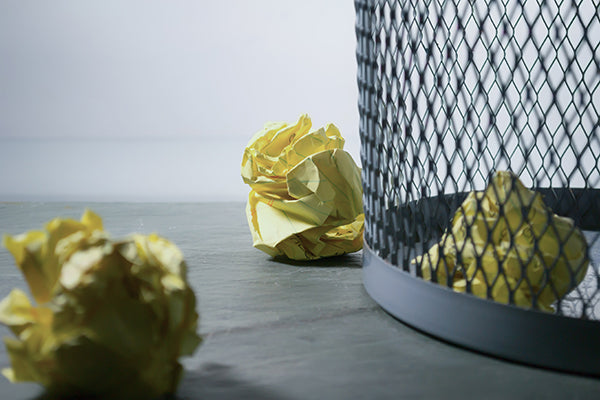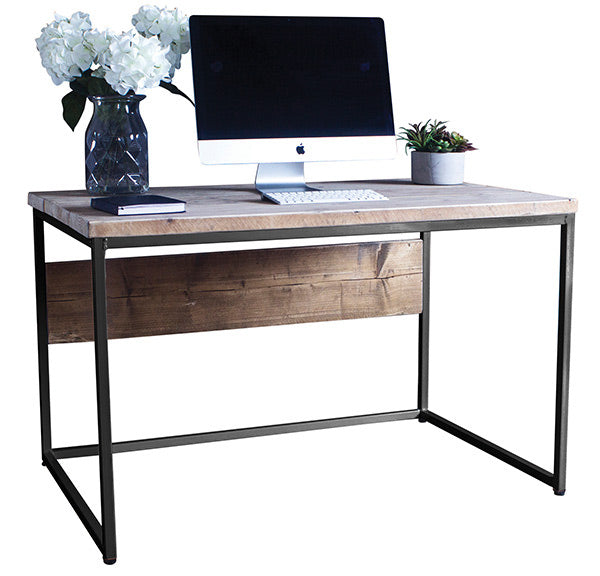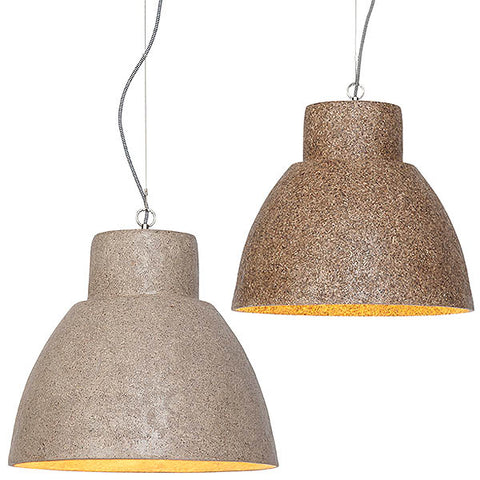
The average office is thought to produce over 1,100 litres of waste per year and although recycling rates are improving, there is a lot more we can do to reduce the amount of ‘waste’ that ends up at landfill. But how can you up your game when it comes to producing less waste?
1 Opt for recycled/repurposed office furniture
The temptation is to assume that the only way to kit out an office is to opt for brand new corporate style office furniture.
Nothing could be further from the truth as there are many stylish furniture options made from recycled materials. Who would have thought, for example, that an office desk could be made from reclaimed scaffolding planks? Scaffolding planks are also used bookcases and display units too, both of which are ideal as office storage.
Reclaimed materials go beyond reclaimed wooden desks too, with shades for pendant lights being made from woodchip, the waste product from sawn timber.
Reclaimed materials go beyond reclaimed wooden desks too. Shades for pendant lights made from woodchip, the waste product from sawn timber, make for a stylish statement and is a great eco-friendly option.
Glass is also a material increasingly recycled, producing stunning pieces for the office and the home. A recycled glass lamp, for example, is ideal in the office and the meeting room.
2 Makes efforts to reduce consumption
There was a time when every task or activity in the office seemed to be paper-dependent. There was also the ink involved in printing and the energy not just in the production of the paper but in the use of office equipment and so on.
Times have changed and technology enables us to work more consciously. Overall, businesses are realising that reducing their consumptions of materials is not only better from the environment but for their profit margin too.
But where the use of paper and other consumables is unavoidable, small efforts to consider not just how much you use but where you get these materials from all make a difference. Recycled paper is fantastic quality, as too are refillable ink cartridges.
3 Invest properly in recycling
It’s one thing paying a company to remove your recycling every few weeks, but another to really invest in the system.
This means not only using a local recycling company but also endorsing the system in the office. Clear labelling of suitable containers, regular reminders to colleagues to recycle as much as they can and to reuse things as much as possible is just as important as engaging recycling contractors to empty bins.
4 Remove personal desk bins

When you have a bin next to your desk, the temptation to drop things in it is too great. Remove personal desk bins so that colleagues go to a central recycling point to recycle their waste. This is not only good practice to increase recycling efforts, but is a good excuse to stand and move, which is essential for your work wellbeing.
5 Raise awareness
Recycling isn’t complicated, but it is important to raise awareness of how we can do more of it, and how we can achieve this. We assume that everyone knows how to do it but this isn’t always the case.
When expanding your recycling system, do so with training and awareness-raising sessions with staff, as well as reminders on not just how to do it but why we’re doing it and its importance.
Recycling in the office is no longer optional but essential. How much more could you do?

